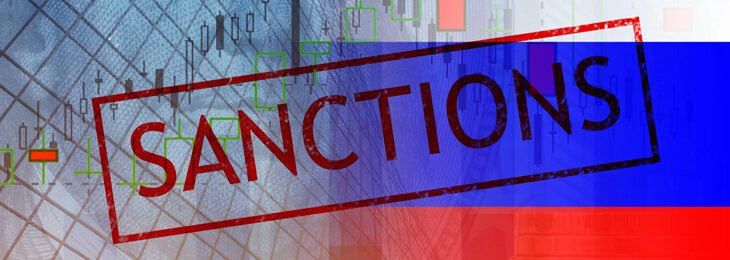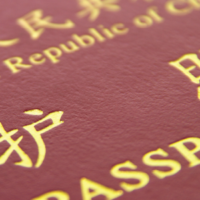
Not only do international organizations such as the United Nations have an important role to play in developing frameworks for combating crime and enforcing prevention, regional organizations are also strongly engaged in supporting individual countries' efforts to mitigate the risks attached to economic crimes such as money laundering. The following article will focus on the activities within the Southern African Development Community (SADC)1 focusing in particular on the nexus between money laundering and precious metals.
SADC is an inter-governmental organization headquartered in Gaborne, Botswana. Its goal is to further socio-economic cooperation and integration, as well as political and security cooperation among southern African states. The SADC's member countries are very diverse facing very varied development challenges. There are large differences in size, economic development, trade patterns and factor endowments.
Currently SADC has 15 Member States: Angola, Botswana, Democratic Republic of Congo (DRC) Lesotho, Madagascar, Malawi, Mauritius, Mozambique, Namibia, Seychelles, South Africa, Swaziland, United Republic of Tanzania, Zambia and Zimbabwe. The region has a population of some 250 million inhabitants and a Gross Domestic Product (GDP) in the range of US$470 billion.
The Community comprises eight, less developed countries, some land-locked, small and vulnerable economies, as well as one prominent country, South Africa, which accounts for more than two-thirds of the region's economy.
Given, the region's vast mineral and chemical resources, the SADC region has become ever more interesting to international investors. Political instability as well as security issues and not least protracted civil wars make the region very high-risk overall.
According to a South African business information site, MBendi,2 Africa as a whole, produces more than 60 metal and mineral products and is a major producer of several of the world's most important minerals and metals including gold, PGE's, diamonds, uranium, manganese, chromium, nickel, bauxite and cobalt. Although reportedly largely underexplored, Africa hosts about 30 percent of the planet's mineral reserves, including 40 percent of gold, 60 percent cobalt and 90 percent of the world's PGM reserves. The increase in exploration and mine development in Africa has been primarily focused on gold and diamond exploration. However, it is now moving into base metals also in the SADC region in countries such as Mozambique and Madagascar, which have great potential for base metal and industrial mineral deposits. It is mostly SADC member countries, which dominate the African mining industry (South Africa, Zimbabwe, Tanzania, Zambia and the DRC). Angola, Namibia, Zambia and Botswana rely heavily on the mining industry as a major foreign currency earner. One of the key problems attached to the resource richness of the region, an issue which is also relevant to anti-money laundering efforts, is that many civil wars have been funded by some of these commodities, in particular diamonds.
With major new mines opening or currently under development in South Africa, Namibia, Botswana and Tanzania producing gold, diamonds, niobium products, PGE's, chrome and base metals, the importance of conducting enhanced due diligence when dealing with the mining and metals industry is apparent.
In April 2011 SADC and the United Nations Office on Drugs and Crime (UNODC) signed a Memorandum of Understanding on Cooperation on Crime Prevention and Drug Control with 11 (excluding Madagascar, Mauritius, Seychelles & Tanzania) of SADC's member states.3 The overall objective of the program will be to support the efforts of SADC and its member states to effectively address evolving national and regional threats posed by drugs and crime, and to promote the rule of law and security in the region. The proposed five-year joint integrated program strives to address the following three core areas:
- Organized crime and illicit trafficking
- Criminal justice
- Drug prevention and treatment, and HIV prevention, treatment and care
The SADC region faces severe institutional challenges and strain on economic resources as a result of various types of economic crimes. Some of the key concerns relate to the rule of law and the overall stability and security within the SADC region.
The table on the next page is derived from the Comparative Table in The International Narcotics Control Strategy Report (Volume II — Money Laundering and Financial Crimes) (INCSR), published by the U.S. State Department in 2011 and sets out actions, which have (Y) or have not (N) taken place to combat money laundering. The actions include legislative activity and other aspects, which can affect a jurisdiction's money laundering vulnerability.4
Only three countries, Lesotho, Malawi and South Africa have fulfilled all the requirements set out in the table above. Most countries apart from the Seychelles and Zambia appear to have implemented KYC procedures. The countries, which to date have not yet established an FIU include Angola, Mozambique, Swaziland and Zambia, and those, which have yet to criminalize the financing of terrorism, are Botswana, Madagascar, Namibia and Swaziland. Those activities which have most commonly not been implemented in a number of countries include the reporting of large transactions (Angola, Madagascar, Mauritius, Namibia, Seychelles, Zambia and Zimbabwe), and the arrangement for asset sharing with third party jurisdictions which assist in investigations (Angola, Botswana, Madagascar, Mauritius, Mozambique, Seychelles, Swaziland and Tanzania). The INCSR report identified only Zimbabwe amongst SADC's 15 member states to be a 'Country of Primary Concern' for money laundering.5 It is also the only country on which the United States, Canada, Australia, and the European Union have imposed targeted financial sanctions and travel restrictions on political leaders and others believed to have been complicit in human rights abuses. In relation to Zimbabwe, it is also worth noting that although the country has implemented KYC provisions for financial institutions, enhanced due diligence procedures for PEPs had, according to the State Department report not yet been enacted. In this regard it is also worth noting that Zimbabwe alongside the Democratic Republic of Congo are the only two SADC countries yet to become party to the UN Convention against Corruption. Furthermore, like Angola and Mauritius, Zimbabwe has not agreed to receive and provide Mutual Legal Assistance.
| Angola | Botswana | DRC | Lesotho | Madagascar | Malawi | Mauritius | Mozambique | |
|---|---|---|---|---|---|---|---|---|
| Criminalized Drug ML | Y | Y | Y | Y | Y | Y | Y | Y |
| Criminalized beyond Drugs | Y | Y | Y | Y | Y | Y | Y | Y |
| KYC-Provisions | Y | Y | Y | Y | Y | Y | Y | Y |
| Record large transactions | N | Y | Y | Y | N | Y | N | Y |
| Report STRs | Y | Y | Y | Y | Y | Y | Y | Y |
| Maintain records over time | Y | Y | Y | Y | Y | Y | Y | Y |
| Disclosure Protection | Y | Y | Y | Y | Y | Y | Y | Y |
| Criminalize 'tipping-off' | N | Y | Y | Y | Y | Y | Y | Y |
| Cross-border Transportation of Currency | Y | Y | Y | Y | Y | Y | Y | Y |
| FIU | N | Y | Y | Y | Y | Y | Y | N |
| International Law Enforcement Cooperation | N | Y | Y | Y | Y | Y | Y | Y |
| Mutual Legal Assistance | N | Y | Y | Y | Y | Y | N | Y |
| System for identifying / forfeiting assets | N | Y | Y | Y | Y | Y | Y | Y |
| Arrangements for Asset Sharing | N | N | Y | Y | N | Y | N | N |
| Criminalized Financing of Terrorism | Y | N | Y | Y | N | Y | Y | Y |
| Report Suspected Terrorist Financing | Y | N | Y | Y | N | Y | Y | Y |
| States Party to 1988 UN Drug Convention | Y | Y | Y | Y | Y | Y | Y | Y |
| States Party to International Terror Finance Convention | Y | Y | Y | Y | Y | Y | Y | Y |
| States Party to UNTOC | Y | Y | N | Y | Y | Y | Y | Y |
| States Party to UNCAC | Y | Y | N | Y | Y | Y | Y | Y |
| US or International Organizations Sanctions/Penalties | N | N | N | N | N | N | N | N |
| Namibia | Seychelles | South Africa | Swaziland | Tanzania | Zambia | Zimbabwe | |
|---|---|---|---|---|---|---|---|
| Criminalized Drug ML | Y | Y | Y | Y | Y | Y | Y |
| Criminalized beyond Drugs | Y | Y | Y | Y | Y | Y | Y |
| KYC-Provisions | Y | N | Y | Y | Y | N | Y |
| Record large transactions | N | N | Y | Y | Y | N | N |
| Report STRs | Y | Y | Y | Y | Y | Y | Y |
| Maintain records over time | Y | Y | Y | Y | Y | Y | Y |
| Disclosure Protection | Y | Y | Y | Y | Y | Y | Y |
| Criminalize 'tipping-off' | Y | Y | Y | Y | Y | Y | Y |
| Cross-border Transportation of Currency | N | N | Y | Y | N | Y | Y |
| FIU | Y | Y | Y | N | Y | N | Y |
| International Law Enforcement Cooperation | N | Y | Y | Y | Y | Y | Y |
| Mutual Legal Assistance | Y | Y | Y | Y | Y | Y | N |
| System for identifying / forfeiting assets | Y | Y | Y | N | Y | Y | Y |
| Arrangements for Asset Sharing | Y | N | Y | N | N | Y | Y |
| Criminalized Financing of Terrorism | N | Y | Y | N | Y | Y | Y |
| Report Suspected Terrorist Financing | N | Y | Y | Y | Y | Y | Y |
| States Party to 1988 UN Drug Convention | Y | Y | Y | Y | Y | Y | Y |
| States Party to International Terror Finance Convention | N | Y | Y | Y | Y | N | Y |
| States Party to UNTOC7 | Y | Y | Y | Y | Y | Y | Y |
| States Party to UNCAC8 | Y | Y | Y | Y | Y | Y | N |
| US or International Organizations Sanctions/Penalties | N | N | N | N | N | N | Y |
On 3 September 2011, The Zimbabwean reported that President Robert Mugabe's ZANU PF party had been accused of running a parallel financial system through which diamond revenues were being directed for the benefit of the well connected at the expense of national development. Reportedly, Zimbabwe's finance Minister Tendai Biti claimed that at least US$1 billion in potential revenue to the national treasury remained unaccounted for. In this regard it is interesting to note that the Kimberley Process sanctioned Zimbabwe for "significant noncompliance" in 2009 but stopped short of expelling it from the group.
The importance of conducting enhanced due diligence when dealing with the mining and metals industry is apparent
The Kimberley Process,6 which took effect in late 2002 by governments, industry and civil society is an initiative to stem the flow of conflict diamonds used by rebel movements to finance wars against legitimate governments, has allegedly reduced the illicit trade of diamonds from as much as 15 percent of the world's supply of diamonds to less than 1 percent. NGOs such as the Extractive Industry's Transparency Initiative (EITI) also play an important role in the drive to set a global standard for transparency in oil, gas and mining by bringing together a coalition of governments, companies, civil society groups, investors and international organizations and encouraging companies to publish what they pay and for governments to disclose what they receive.9 Democratic Republic of Congo, Mozambique, Tanzania and Zambia are the only SADC countries currently registered as 'Candidate Countries.' Madagascar was listed as having been suspended.
Within the context of the race for resources, undertaking enhanced due diligence and political due diligence in order to prevent money laundering, corruption and ultimately civil war, is of ever increasing importance in working towards a sustainable future for the SADC region.
- http://www.sadc.int/
- http://www.mbendi.com/mbendipr/index.htm
- http://www.unodc.org/southernafrica/en/stories/sadc_unodc_mou.html
- http://www.state.gov/g/inl/rls/nrcrpt/2011/vol2/
- It should, however, also be noted that a so-called 'Jurisdiction of Primary Concern' is defined by statute as one "whose financial institutions engage in currency transactions involving significant amounts of proceeds of all serious crimes." Thus, the focus in considering whether a country or jurisdiction is defined as being of primary concern is unlike in the case of the FATF reviews more on the significance of the amount of proceeds laundered rather than on the anti-money laundering measures taken. Thus governments such as the United States or the United Kingdom can have comprehensive anti-money laundering laws on their books and conduct aggressive anti-money laundering enforcement efforts but still be classified a "Primary Concern" jurisdiction. In some cases, this classification may simply or largely be a function of the size of the jurisdiction's economy.
- http://www.kimberleyprocess.com/home/index_en.html
- States Party to UN Convention against Transnational Organized Crime.
- States Party to UN Convention against Corruption.
- http://eiti.org/eiti










